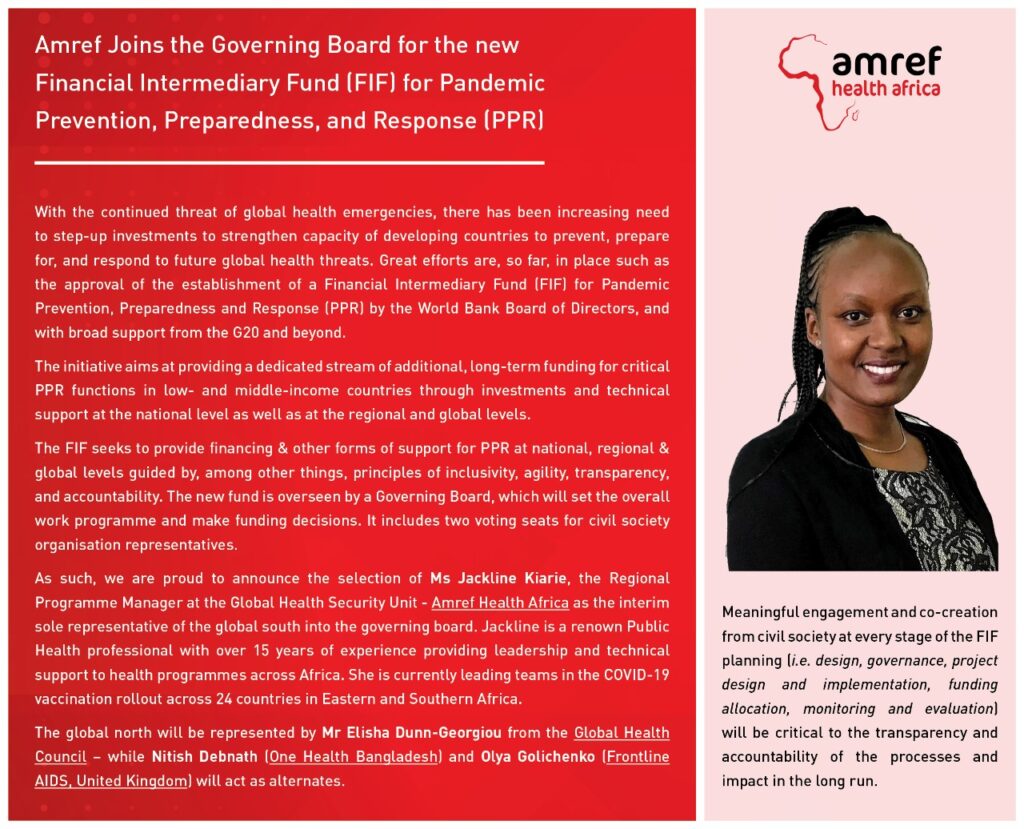With the continued threat of global health emergencies, there has been an increasing need to step-up investments to strengthen the capacity of developing countries to prevent, prepare for, and respond to future global health threats. Great efforts are, so far, in place such as the approval of the establishment of a Financial Intermediary Fund (FIF) for Pandemic Prevention, Preparedness and Response (PPR) by the World Bank Board of Directors, and with broad support from the G20 and beyond.
The initiative aims at providing a dedicated stream of additional, long-term funding for critical PPR functions in low- and middle-income countries through investments and technical support at the national level as well as at the regional and global levels.
The FIF seeks to provide financing & other forms of support for PPR at national, regional & global levels guided by, among other things, principles of inclusivity, agility, transparency, and accountability. The new fund is overseen by a Governing Board, which will set the overall work programme and make funding decisions. It includes two voting seats for civil society organisation representatives.
As such, we are proud to announce the selection of Ms Jackline Kiarie, the Regional Programme Manager at the Global Health Security Unit – Amref Health Africa as the interim sole representative of the global south into the governing board. Jackline is a renowned Public Health professional with over 15 years of experience providing leadership and technical support to health programmes across Africa. She is currently leading teams in the COVID-19 vaccination rollout across 24 countries in Eastern and Southern Africa.
The global north will be represented by Mr Elisha Dunn-Georgiou from the Global Health Council – while Nitish Debnath (One Health Bangladesh) and Olya Golichenko (Frontline AIDS, United Kingdom) will act as alternates.
Meaningful engagement and co-creation from civil society at every stage of the FIF planning (i.e. design, governance, project design and implementation, funding allocation, monitoring and evaluation) will be critical to the transparency and accountability of the processes and impact in the long run.

